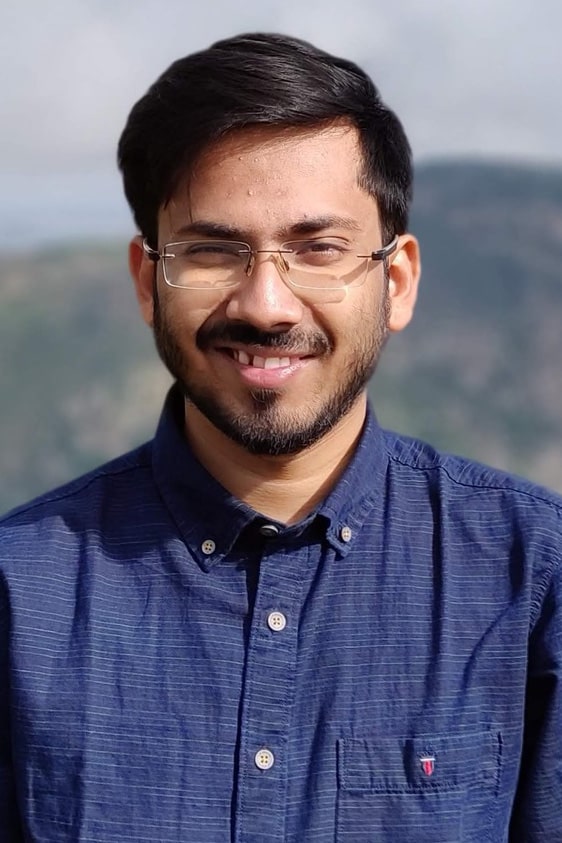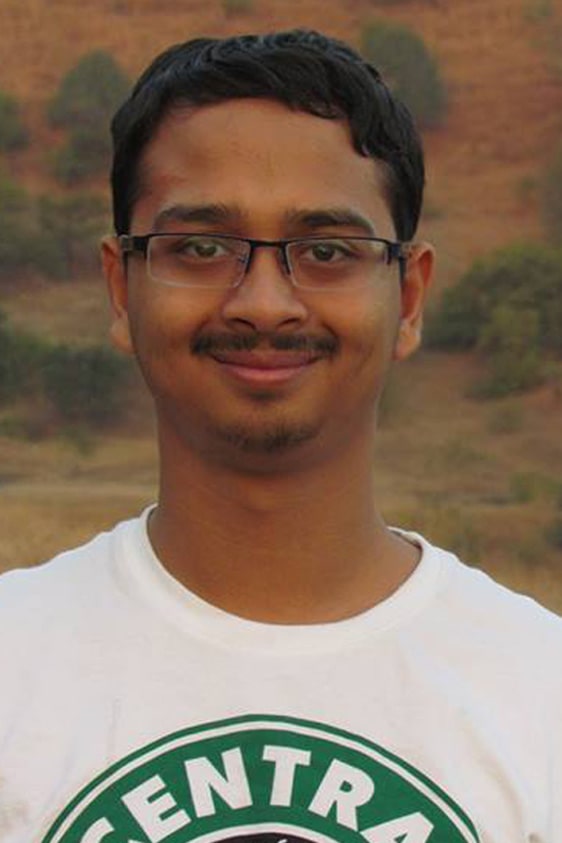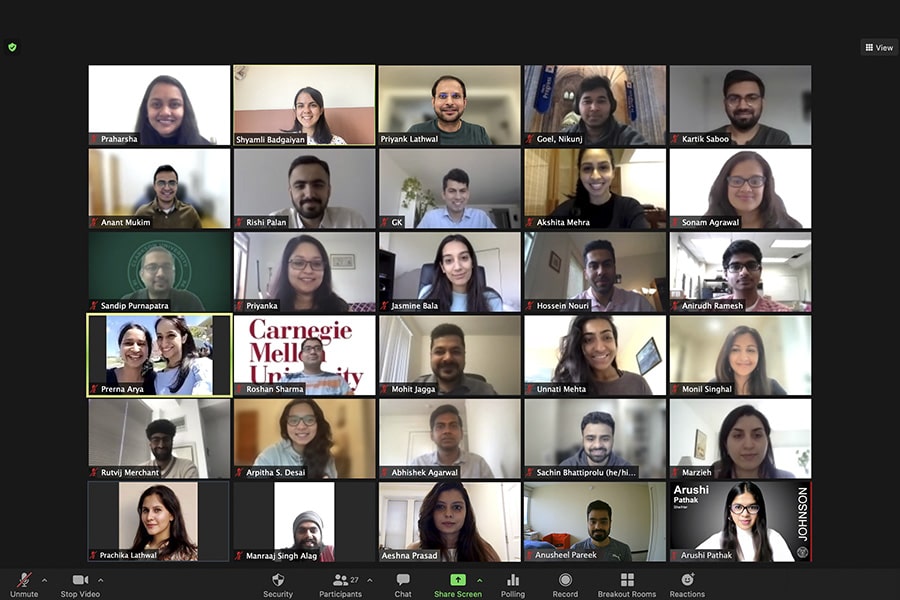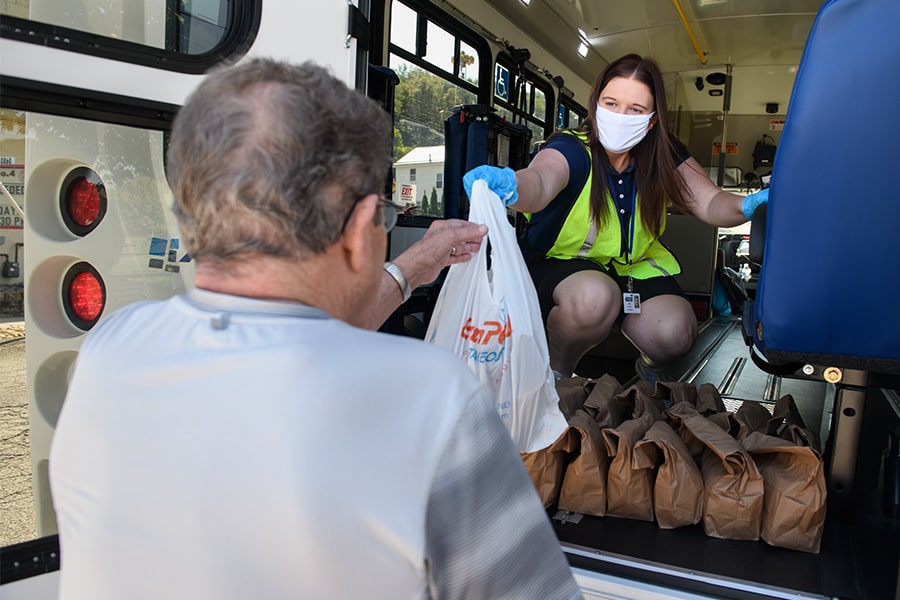Tartans Aid India Through COVID Crisis
With contemporary skillsets and technological aptitude, the members of the Carnegie Mellon community often apply novel solutions to real world-problems. For some Tartans, the urge to help those in need recently hit home.
As the COVID-19 pandemic began to ravage his native India, Mashrin Srivastava, an incoming graduate student in machine learning, realized that his skill with a computer could save lives.
"By the time people got serious about it, there were already close to 400,000 recorded cases per day. The actual number may be millions every day. We didn't have an official central health care system that maintains how many beds are available or what the situation is for oxygen, so in most cases, it was more of a supply-demand issue, and people were not finding what they needed," Srivastava said.
At home in Mumbai, he started manually searching for information about possible resources, via Twitter and Google, to share with as many people as he could.
Inevitably, COVID-19 encroached upon his life. Within several months, he'd lost more than 10 friends and family members to the pandemic — including his grandfather, who passed away just days before his grandson's application to CMU was due.
When Srivastava himself started experiencing COVID-19 symptoms, he decided to develop a real-time app for locating precious COVID-19 resources in India.
"The idea struck me after I underwent a COVID-19 scare. I was worried that I might not be able to help with these searches if I am down with COVID-19 and hence wanted to build something that others can use to find the resources," said Srivastava, who works with Intel as a deep learning engineer. Fortunately, he hadn't contracted the virus and has since been vaccinated.
It took Srivastava about three hours to create the first version of the app, which he launched in late April.
Called covidsos, the user interface is simple and doesn't require providing information or signing up. Using intelligent keyword searches culled from platforms like Twitter, the app curates the most up-to-date COVID-19-related resources in India, including the availability of ventilators, plasma, oxygen, hospital beds, open vaccination slots and even food. The app is free and currently supports the nine languages most commonly spoken in India.
To date, over two million users have been logged, all throughout India and even in the U.S.
"The feedback I got was overwhelming. Within hours, the app was shared across social media platforms and over WhatsApp, even before making any post about it publicly," he said.
He has since updated the app so that it now supports finding resources for mucormycosis, the fungal infection that is troubling COVID-19 patients in India.
"Honestly, I built the app thinking that if it even helps save one life, it's worth it," Srivastava said. "I'm glad that it helped many in need. In the last month, I've been flooded with messages about how the app helped, just in time. It was heartening to know that technology was able to help those in need in some way."
Meanwhile, approximately 150 kilometers south of Mumbai in the city of Pune, Abhishek Dedhe, a doctoral candidate studying cognitive neuroscience at CMU, engaged in a data project that he is sharing with the local government — analyzing knowledge, beliefs and behaviors, which ultimately will be used to inform governmental policy changes for those most affected by COVID-19.
Pune, the eighth largest city with a population of five million, was one of the hardest hit by COVID-19 in India.
It also has a large population living in slums or low-resource neighborhoods. "About 40% of the population, which is about 1.5 to 1.6 million people, reside in these high-density, low-sanitation neighborhoods with scarce resources," Dedhe said.
Residents of these neighborhoods — who may live 10 to a room or have no access to personal toilets — bore the brunt of the pandemic.
The project started out in March of 2020 as a competition sponsored by the Johns Hopkins Center for Bioengineering Innovation and Design, which invited student-run teams to compete in a four-day hackathon to develop innovative solutions to the pandemic. Dedhe's team placed among the top 20 out of over 500 teams that applied.
"We found a disproportionately negative impact on Punekars from low socioeconomic (SES) groups, both medically and economically," Dedhe said. For example, participants from low SES reported six times more job loss and two times more COVID-19 cases than those from high SES.
His interdisciplinary team, which has grown to about 40 people and 15 nonprofits, representing four countries across five different time zones, conducted a supplemental survey during the second wave of COVID-19.
This past March, they submitted a report to the local Pune government and presented findings to 10 or so grassroots nonprofits who helped deploy the survey. He is hopeful that the findings will be implemented by local officials to effect change, such as efficiently distributing vaccines or implementing behavioral measures. They are also developing a knowledge repository where they will digitize the data from different local surveys done in Pune.
The now official research project is a collaboration between CMU the Jnana Prabodhini Foundation (JPF), a nonprofit committed to social welfare in India. After the hackathon, his team wanted to continue to carry out credible research using the resources and expertise of CMU.
"There were few things I could directly do for India sitting in the U.S. I couldn't be a frontline worker or raise tremendous amounts of money as a Ph.D. student," Dedhe said. "I and my team members decided that our best contribution was using our knowledge and research skills."




